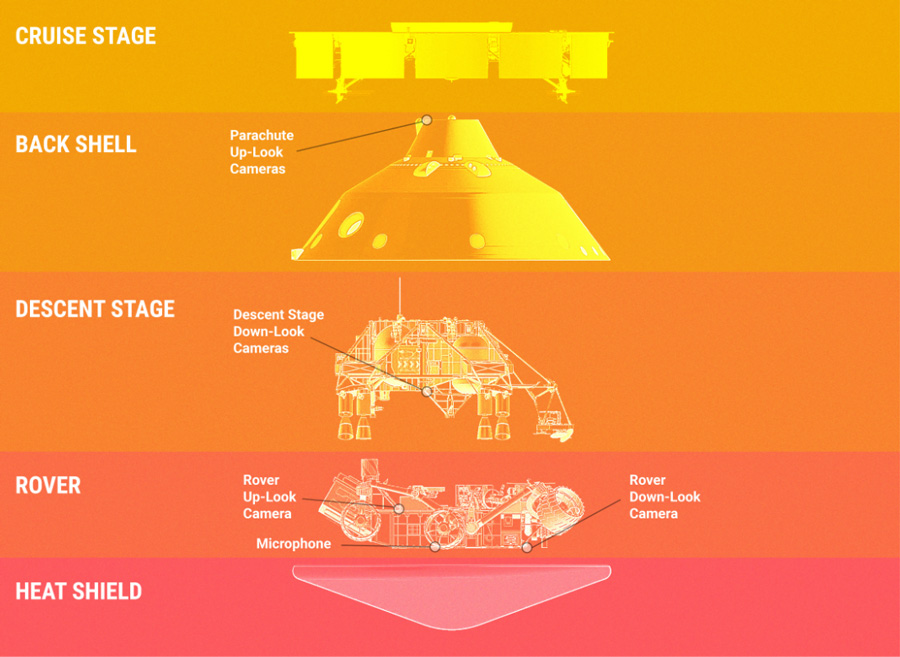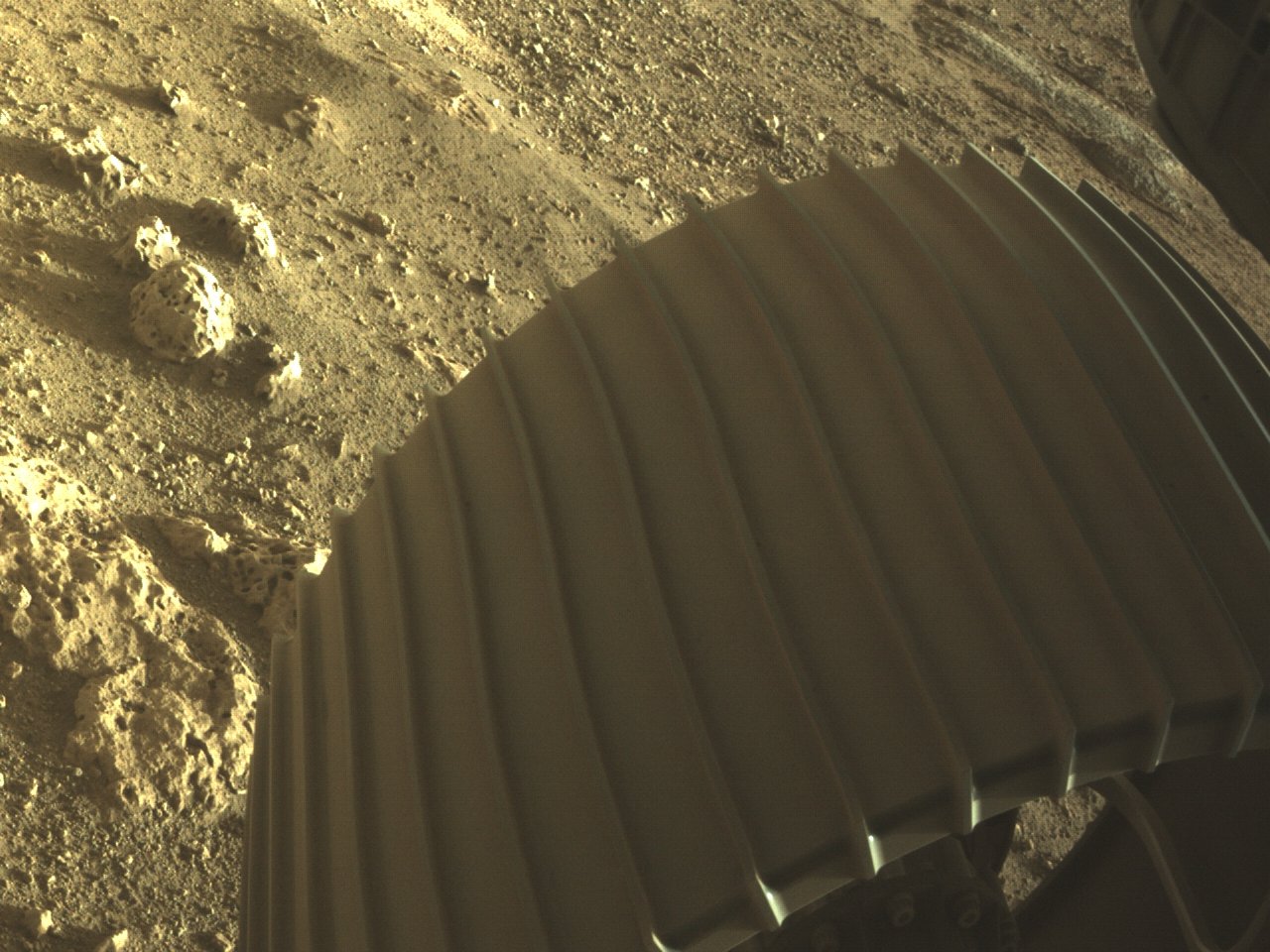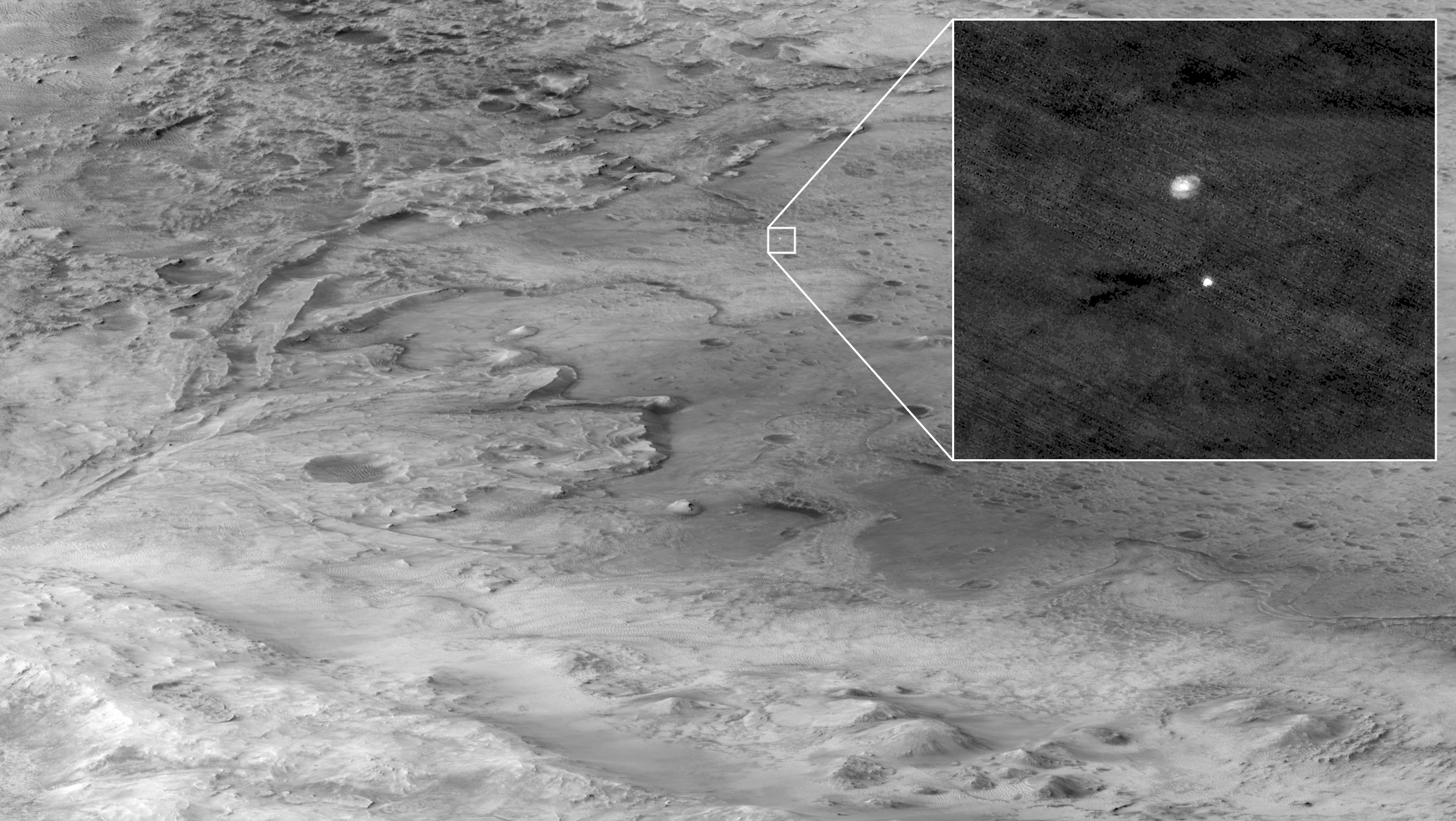The Perseverance Mars rover landed safely yesterday, but only after a series of complex maneuvers as it descended at high speed through the atmosphere, known by the team as the “seven minutes of terror.” NASA has just shared a hair-raising image of the rover as it dangled from its jetpack above the Martian landscape, making that terror a lot easier to understand.
Published with others to the rover’s Twitter account (as always, in the first person), the image is among the first sent back from the rover; black-and-white shots from its navigation cameras appeared almost instantly after landing, but this is the first time we’ve seen the rover — or anything, really — from this perspective.
The image was taken by cameras on the descent stage or “jetpack,” a rocket-powered descent module that took over once the craft had sufficiently slowed via both atmospheric friction and its parachute. Once the heat shield was jettisoned, Perseverance scanned the landscape for a safe landing location, and once that was found, the jetpack’s job was to fly it there.

The image at the top of the story was taken by the descent stage’s “down-look cameras.” Image Credits: NASA/JPL-Caltech
When it was about 70 feet above the landing spot, the jetpack would have deployed the “sky crane,” a set of cables that would lower the rover to the ground from a distance that safely allowed the jetpack to rocket itself off to a crash landing far away.
The image at top was taken just moments before landing — it’s a bit hard to tell whether those swirls in the Martian soil are hundreds, dozens or just a handful of feet below, but follow-up images made it clear that the rocks you can see are pebbles, not boulders.
The images are a reminder that the processes we see only third-hand as observers of an HQ tracking telemetry data sent millions of miles from Mars are in fact very physical, fast and occasionally brutal things. Seeing such an investment of time and passion dangling from cords above a distant planet after a descent that started at 5 kilometers per second, and required about a hundred different things to go right or else end up just another crater on Mars… it’s sobering and inspiring.
That said, that first person perspective may not even be the most impressive shot of the descent. Shortly after releasing that, NASA published an astonishing image from the Mars Reconnaissance Orbiter, which managed to capture Perseverance mid-fall under its parachute:
Keep in mind that MRO was 700 km away, and traveling at over 3 km/second at the time this shot was taken. “The extreme distance and high speeds of the two spacecraft were challenging conditions that required precise timing and for Mars Reconnaissance Orbiter to both pitch upward and roll hard to the left so that Perseverance was viewable by HiRISE at just the right moment,” NASA wrote in the description of the photo.
Chances are we’re going to be treated to a fuller picture of the “seven minutes of terror” soon, once NASA collects enough imagery from Perseverance, but for now the images above serve as reminders of the ingenuity and skill of the team there, and perhaps a sense of wonder and awe at the capabilities of science and engineering.
Source: Tech Crunch




